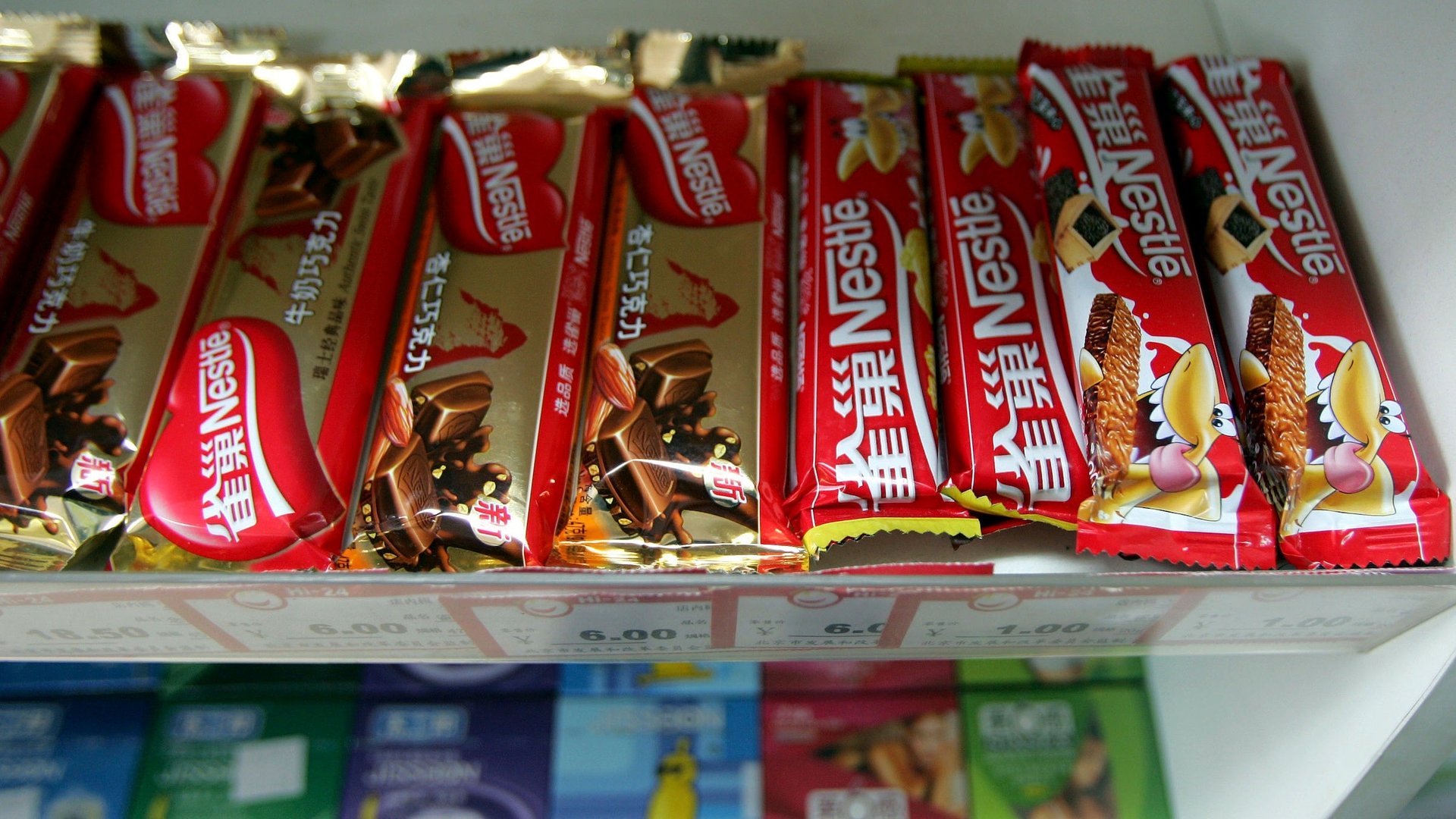Hershey’s first new brand in 30 years is taking its cues from China
Big Western brands have spent the last several decades trying to crack emerging markets with their marquee brands. But now that many have established booming businesses abroad, some are reversing course.


Big Western brands have spent the last several decades trying to crack emerging markets with their marquee brands. But now that many have established booming businesses abroad, some are reversing course.
Take Hershey, which announced plans today to introduce its first new brand in 30 years in the US. The American household name is launching line of caramels called Lancaster, according to the Wall Street Journal. But American consumers won’t be the first to sink their teeth into the company’s new candies; their Chinese counterparts have been chewing on them since earlier this year. The move, Hershey claims, underscores the company’s “deep commitments to China” and an emphasis on using lessons learned in China to branch out globally. The US version will be slightly chewier and creamier, vice president of sweets and refreshments at Hershey Steven Schiller told the WSJ.
Western giants including Proctor & Gamble and Colgate have been gleaning insights about fragrance and consistency in emerging markets like Latin America to craft similar products for the US and Europe. Meanwhile, other Western retail brands are still working to build their global brand cachet with products tailored to emerging market tastes. Estée Lauder launched a new beauty line called Osiao made exclusively for China last year. In 2011, French luxury brand Hermès launched a line of bespoke saris in India to woo Indian women stuck on local styles.
Bringing back products conceived in emerging markets is easy for Western behemoths that have spent decades honing their global reputation. But those efforts aren’t helping emerging market brands that have enjoyed success in their home countries but are struggling to grow abroad. Many Chinese companies, like tech giant Lenovo and carmaker Geely, have resorted to buying Western brands like IBM and Volvo to crack markets abroad. A study conducted earlier this year found that despite the many products made in China that sell in Western markets, Western consumers remain hard-pressed to name even a single Chinese brand.